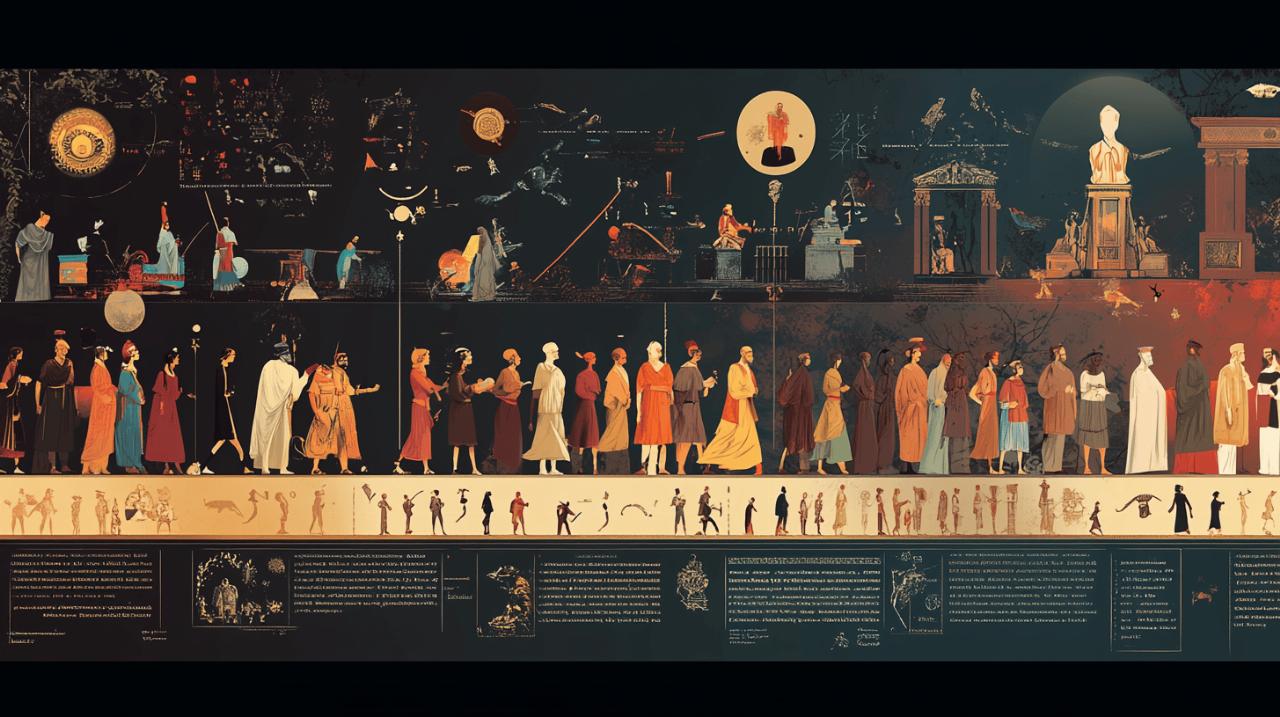Understanding the Prenom Alexandre | Anciennete, Genre, Portee Et evolution and Its Relationship to Alexander: Setting the Record Straight
The name Alexandre carries with it a legacy that stretches back millennia, weaving through ancient civilisations, royal courts, and into the everyday lives of countless families across France and beyond. It is a prenom that has stood the test of time, resonating with strength, nobility, and a certain timeless elegance. Understanding its origins, evolution, and the reasons for its enduring appeal offers a fascinating glimpse into the cultural and historical forces that shape how we name our children. From its Grecque roots to its modern-day popularity in Parisian arrondissements, Alexandre remains a distinguished choice for parents seeking a name with gravitas and tradition.
Tracing the Ancient Roots: From Alexandros to Alexandre
The Grecque Origins and Etymological Significance of the Name
At the heart of the name Alexandre lies the ancient Grecque prenom Alexandros, a term rich in meaning and historical weight. The etymologie of Alexandros derives from two components: alexein, meaning to defend or to ward off, and aner or andros, meaning man or mankind. Thus, the name translates to defender of mankind or protector of men, a powerful designation that speaks to qualities of courage, leadership, and guardianship. This semantic significance has ensured that Alexandre, and its many variations, have been favoured throughout history by those wishing to bestow upon their garcons a name that embodies strength and virtue.
The cultural resonance of this prenom can be traced to the Grecque world, where names were not merely labels but reflections of character and destiny. The very structure of the name, with its commanding syllables and clear pronunciation, lends itself to a sense of authority and respect. In medieval literature, the legacy of this name was celebrated and analysed, with scholarly works such as the Libro de Alexandre offering detailed textual analysis of how the figure of Alexander the Great was portrayed in Spanish medieval texts. Research published in Cahiers d'Études Hispaniques Médiévales in 1999 by Amaia Arizaleta explores the translation and structures of such medieval Hispanic studies, demonstrating how Alexandre's legend transcended borders and languages. The study, available through the Persée digital library, underscores the enduring fascination with this name across different eras and literary traditions.
How Macedoine Shaped the Journey of This Distinguished Prenom
The historical journey of Alexandre owes much to the region of Macedoine, the ancient kingdom that gave rise to one of history's most iconic figures: Alexander the Great. Born in the fourth century BCE, Alexander of Macedoine embarked on conquests that would reshape the known world, spreading Grecque culture and language across vast territories. His military genius, ambition, and tragic early death at the age of thirty-three cemented his place in legend, and his name became synonymous with greatness and heroism. The influence of this Macedoine ruler cannot be overstated, as his legacy ensured that the prenom Alexandre would be adopted and revered across Europe and beyond.
As the centuries progressed, the name travelled from ancient Macedoine through the Roman Empire, into medieval Europe, and eventually flourished in France, where it became a staple among the aristocracy and later the general populace. The moyen age saw the name featured in epic tales and chivalric romance, often associated with the ideal knight or the noble warrior. The portrayal of Alexander in medieval structures and literary research highlights the name's association with valour and noble endeavour. This historical continuity, from Macedoine to modern Paris, reflects a cultural quete for names that embody timeless virtues and connect families to a storied past.
The masculine identity: gender patterns and usage across generations
Why Alexandre Remains Predominantly a Garcon's Name in France
Throughout its long histoire, Alexandre has been overwhelmingly a masculin prenom, given almost exclusively to garcons. This pattern is rooted in the ancient and medieval traditions where the name's martial and protective connotations were seen as inherently male attributes. The cultural context of France, with its long history of honouring military leaders, statesmen, and intellectuals, has reinforced the association of Alexandre with masculine identity. The etat civil records across the pays consistently show that the vast majority of naissances registered under this name are for boys, with only rare exceptions.
The prenoms masculins liste in France has always featured Alexandre prominently, and its usage reflects broader societal norms about gender and naming conventions. Parents seeking a name that conveys authority, tradition, and a sense of history have traditionally turned to Alexandre for their sons. The name's connection to figures of power, from Alexander the Great to French royalty and members of the legion d'honneur, has ensured its continued appeal as a garcon's name. This enduring masculin identity is unlikely to change, as the name's historical and cultural weight remains firmly anchored in its male heritage.
Examining the Rare Cases of Alexandre as a Fille's Prenom
While Alexandre is unquestionably a masculin name, there have been rare instances where it has been bestowed upon filles, though these cases are few and far between. In some families, the desire to honour a male relative or to break with convention has led to the name being used for girls, though this remains an exception rather than the rule. The general trend shows that when parents seek a feminine version of Alexandre, they typically opt for Alexandra or Alexandrine, both of which retain the etymologie and historical resonance of the original while conforming to feminine naming patterns.
The rarity of Alexandre as a fille's prenom also reflects broader cultural attitudes towards gender and nomenclature. In France, where the distinction between masculin and feminin names is deeply ingrained in the language and culture, deviations from established norms are uncommon. The etat civil and naissances records provide little evidence of widespread usage of Alexandre for girls, reinforcing the name's masculine identity. Nonetheless, the occasional use of Alexandre for filles demonstrates the evolving nature of naming practices and the willingness of some families to challenge traditional boundaries, even if such cases remain exceptional in the broader context of French naming conventions.
Charting Popularity Through the Ages: From Revolution to Modern Paris
Analysing Naissances Data and the Rise to Premiere Position
 The popularite of Alexandre has fluctuated over the centuries, with notable peaks corresponding to historical events and cultural shifts. Following the French Revolution, there was a marked increase in the use of names associated with classical antiquity and ideals of liberte and equality. Alexandre, with its ancient Grecque origins and associations with great leaders, fit this trend perfectly. Parents seeking to imbue their garcons with a sense of grandeur and historical significance turned to Alexandre, leading to a surge in naissances bearing the name.
The popularite of Alexandre has fluctuated over the centuries, with notable peaks corresponding to historical events and cultural shifts. Following the French Revolution, there was a marked increase in the use of names associated with classical antiquity and ideals of liberte and equality. Alexandre, with its ancient Grecque origins and associations with great leaders, fit this trend perfectly. Parents seeking to imbue their garcons with a sense of grandeur and historical significance turned to Alexandre, leading to a surge in naissances bearing the name.
Etat civil records from the nineteenth and twentieth centuries reveal that Alexandre achieved premiere position in various regions of France, particularly in Paris and other major cities. The name's enduring appeal can be attributed to its versatility and the respect it commands. Unlike more fleeting trends, Alexandre has maintained a steady presence, never entirely falling out of favour. The influence of ancien figures and the continuing veneration of historical Alexandre bearers have ensured that the name remains a premier choice for families across generations. The data on naissances consistently shows that Alexandre is a prenom that parents return to, valuing its timeless quality and cultural resonance.
The Influence of Historical Figures and Etat Civil Records on Name Trends
The liste of notable Alexandres throughout histoire is extensive, spanning royalty, military leaders, artists, and intellectuals. From Alexandre Dumas, the celebrated author of the Comte de Monte Cristo and The Three Mousquetaires, to Alexandre de Rhodes, the French missionary and lexicographer, the name has been carried by individuals who have left an indelible mark on culture and society. The presence of such illustrious bearers has reinforced the name's association with talent, achievement, and distinction, encouraging successive generations to bestow it upon their garcons.
Etat civil records serve as a crucial source for understanding these naming trends, providing concrete data on the frequency and distribution of Alexandre across different periods and regions. These records reveal how external factors, such as political upheaval, cultural movements, and the fame of particular individuals, can influence naming patterns. The quete for a name that balances tradition with aspiration often leads families to Alexandre, a prenom that offers both a connection to the past and a sense of forward-looking ambition. The influence of the legion d'honneur recipients and other distinguished figures bearing the name has further solidified its status as a prenom of choice for those seeking to honour their heritage and inspire their children.
Cultural resonance and global reach: alexandre beyond french borders
Notable Bearers from the Legion d'Honneur to Artistic Circles
Alexandre's cultural significance extends far beyond its etymologie and historical origins, permeating artistique and intellectual circles throughout Europe. In France, numerous recipients of the legion d'honneur have borne the name, underscoring its association with public service, bravery, and national pride. The name has also been a favourite among artists, composers, and writers, who have drawn inspiration from its storied past and the legacy of Alexander the Great. This connection to creativity and excellence has ensured that Alexandre remains a prenom with considerable cultural cachet.
The literary and artistic resonance of Alexandre is further evidenced by its frequent appearance in works of fiction and historical narratives. The Libro de Alexandre, a medieval Spanish text, exemplifies how the name and its associated legend were adapted and celebrated in different linguistic and cultural contexts. Scholarly research, such as that published by Amaia Arizaleta in 1999 and available through the Persée digital library, highlights the medieval structures and semantic meanings embedded in such texts. These studies, supported by institutions like KUNCKSIECK in Paris, reveal the depth of academic interest in the name and its literary manifestations, reinforcing Alexandre's place in both popular and scholarly discourse.
The Anglo-Saxon Adaptation: Comparing Alexandre with Alexander in Different Pays
While Alexandre is quintessentially French, its influence and variants have spread across the globe, particularly in anglo-saxon pays where the form Alexander is more commonly used. The two versions share the same Grecque etymologie and historical roots, yet their usage reflects distinct linguistic and cultural preferences. In English-speaking countries, Alexander has long been a popular choice, often abbreviated to Alex, and carries many of the same connotations of strength and leadership as its French counterpart.
The comparison between Alexandre and Alexander reveals interesting patterns in how names travel and adapt across borders. In France, the softer, more melodious pronunciation of Alexandre aligns with the phonetic preferences of the French language, while the Anglo-Saxon Alexander retains a slightly more robust and direct sound. Despite these differences, both forms honour the same ancient legacy and continue to be chosen by parents seeking a name with historical gravitas and international appeal. The global reach of this prenom underscores its universal resonance and the enduring legacy of the Macedoine conqueror whose name has echoed through millennia, inspiring countless families across different pays and cultures to choose Alexandre or Alexander for their children.
